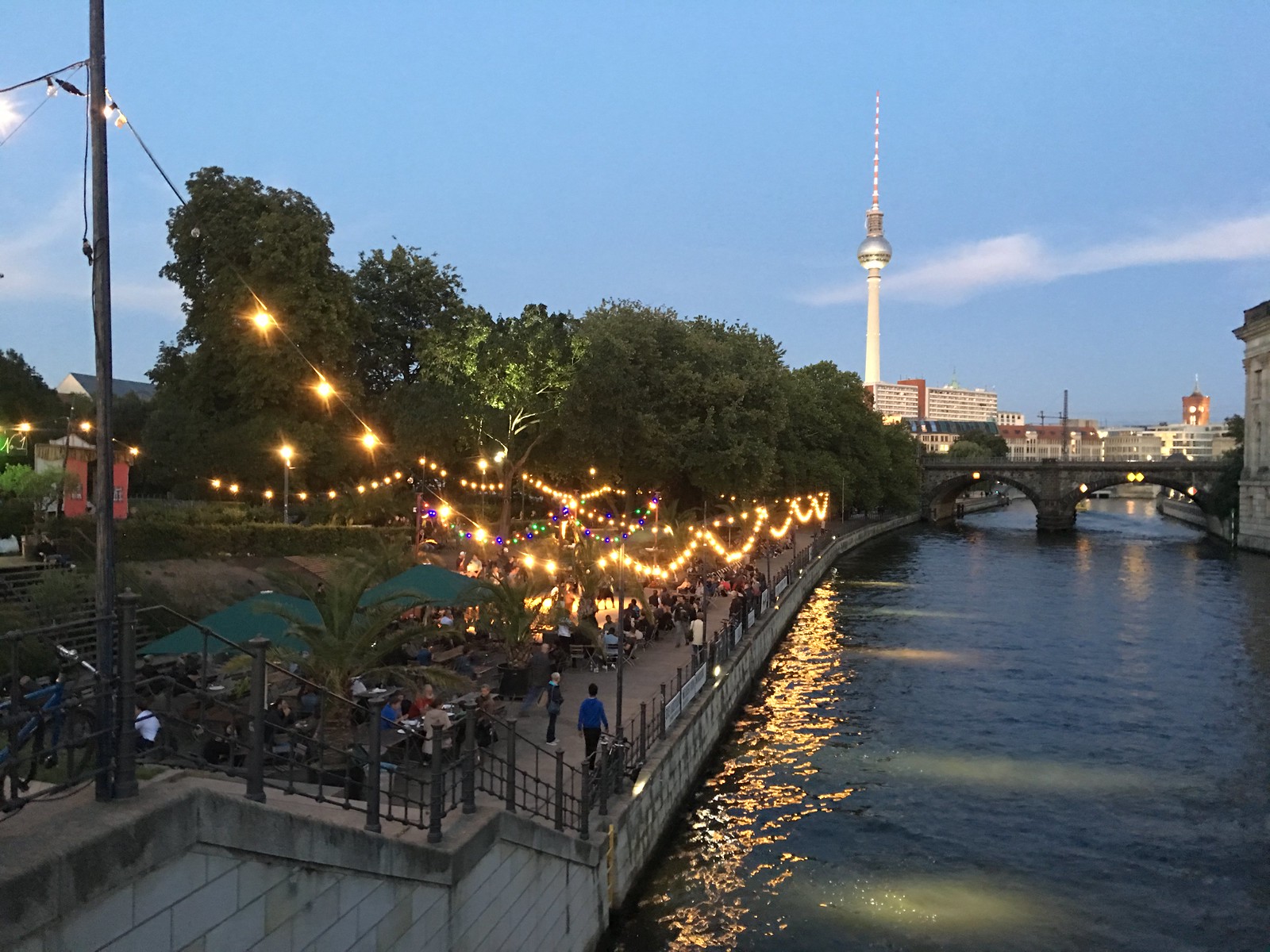Stories from Berlin: At the Beach Bar in Mitte


This is a post about payment systems, bottle deposit and pragmatism of the people from Berlin at one of the very original outdoor bars in the heart of the city of Berlin. What happened?
If you have ever been in Berlin, you remember the name of its central district, Berlin-Mitte (engl: Berlin-Centre). Alexanderplatz, the television tower and the Humboldt University of Berlin (where I studied) is located there. You get off the train at station Alexanderplatz and walk towards Hackescher Markt. In 10 minutes walking distance, you reach Monbijou Park. The park is bounded by the river Spree. Boats with waving tourists pass by. Right across the river, one finds the Museum Island with, among others, the Bode Museum.
Right at this place, the Beach Bar offers throughout the summer open air balls for Tango Argentino, Swing and various other dances. That’s why I’ve been there!

So I’ve been there with few friends to watch and dance a bit Swing (Lindy Hop). My friends left a bit earlier and I went to the bar to get a drink.
My favourite drinks I only find in Germany
If you have ever danced something like Swing or Tango, you probably know that it gets even more difficult when you are drunken. So most people would abstain from spirituous beverages stronger than beer or wine. Both is probably the preferred choice for many. Germans are very proud of the variety of German brewery and would name it probably as a thing they believe are known for abroad. Actually, this is wrong. Belgium and Dutch beer is internationally much more accepted.
However, there are many sparkling, non-alcoholic beverages that I actually miss abroad.

- Fritz Cola: from Hamburg, less sweet, sold in glass bottles
- Schweppes Ginger Ale: drink on the base of ginger, less sweet
-
Club-Mate: drink on the base of caffeine
 . Not my favourite one, but a very important part of German subculture (especially hacker culture). Read along on Wikipedia.
. Not my favourite one, but a very important part of German subculture (especially hacker culture). Read along on Wikipedia. - Apfelschorle: This is actually just sparkling water with apple juice mixed right in place. You can find Lift in some countries. There is a variety of other Schorles, e.g. Rhabarberschorle on the base of rhubarb (sold in bottles).
Wegbier (Beer to go)
It is actually important to get your drink in a bottle. In Germany, you are allowed to drink spirituous beverages on the street and public places, unlike in other countries like France. Many young people are drinking on the way to the party or to the club the so-called Wegbier. Bottles are handy therefore. To properly clink glasses, it has to be glass. People are also drinking in the urban railway (cf. Ringbahnsaufen, engl.: circular railway swigging).
By the way: All sparkling beverages come with bottle deposit of 0,08 Euro to 0,25 Euro. Some poor people gather empty bottles in the streets (sometimes left on purpose) to earn a bit extra money. The term Flaschensammler has been coined for them and in some cities, trash bins have even a construction to deposit the returnable bottles. The website of the communal refuse collection service of Berlin has a picture and calls this an ecological-social project. I find this a bit sarcastic. Nobody’s income should rely on the street waste of his neighbours.
Paying at the bar
So I get to the bar with the aim to get a Maß Apfelschorle. That’s 4 Euro (07/2015). Unfortunately, I only have few cents more than 3 Euro. I ask the barkeeper if cash cards would be excepted. This is not the case. I make a remark saying that I just spent few days in Norway without touching a single coin1. The barkeeper is not impressed. I offer to pay with 1,20 Euro stamp from France. This cannot convince the barkeeper either. At this point, a women that just got her drink had pity for me and gave me a Euro.
The barkeeper gets the 4 Euro and starts mixing the Apfelschorle. Then, he remarks that the is a glass deposit of 1 Euro. At this point, everyone close to the bar knew that I would not have another Euro. No deposit, no drink. I read recently a nice essay (in German) of an Berlin immigrant about the forbidding culture and the power of exceptions in our city. It didn’t help me. I offer again my French stamp. Finally, another guy gives me another Euro. So nice.
However, when they realised that I just ordered Apfelschorle and not a beer, everyone was groaning. So they are in Berlin.
-
This is not completely true. I mentioned this already when I was still in Norway and someone put a coin in my hands. Though this doesn’t count, as I gave back the coin instead of spending it.
 ↩︎
↩︎